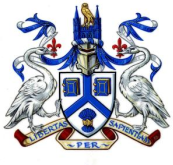
|
|
|
Conference Tutorials
Gesture Recognition and Control using Microsoft Kinect
 |
Dr. John C. Murray |
Abstract
Over the years computer games and their use have changed dramatically. From being initially developed by enthusiasts to moving to more commercial companies and being used for recreation to their use in training and teaching, such as the area of serious games. The associated computer hardware had also made great strides in recent years and as a result computer games have moved from being considered ‘couch potato’ material, to offering people the chance to engage physically with the game, thereby providing a new and truly immersive experience. This has in a large part been helped by the success of Microsoft’s Kinect Sensor; a combined RGB and Depth camera system allowing for full tracking of human participants and players.
The use of the Kinect Sensor has had a huge impact, not just for games, but multimedia applications, robotics and computer science in general, allowing full interaction and control of software applications and external devices. Applications utilising the Kinect Sensor have included 3D modelling, 3D scanning, immersive games, software application interaction and robotic control.
In this workshop will look at the basics of XNA, the Microsoft Framework behind the Xbox 360. We will look at creating simple applications that allow for 3D model rendering and control. From here we will look at the Kinect Sensor API which sits atop XNA to create interactive applications. We will look at how these applications can have benefits to participants, how we can use them to do such things as measure height, posture and flexibility. Finally, we will look at using the Kinect Sensor to control external devices for Human-Control-Interaction and how this can revolutionise the multimedia and games industry.
Curriculum Vitae
Dr. John Murray received his PhD in Computational Neuroscience and Robotics at the University of Sunderland in 2006 after graduating from the University of Wales, Aberystwyth in 2002. Dr. Murray joined the University of Lincoln in 2009 from the University of Hertfordshire where he worked as Research Fellow on the EU Funded FEELIX-Growing project, working on Emotional Interaction between Robots and Humans.
Dr. Murray’s research interests include Human Robot Interaction, specifically on emotional interaction in body posture, prosody and facial communication. Other research areas include Aerial Surveillance and monitoring, use of robotics for Animal Behaviour Studies and Ecology.
Tutorial on Game AI
Dr Cüneyt Süheyl Özveren
International Collaborations Manager
School of Engineering Computing and Applied Mathematics
University of Abertay Dundee


 Email:
Email:  Tel:
Tel: 








